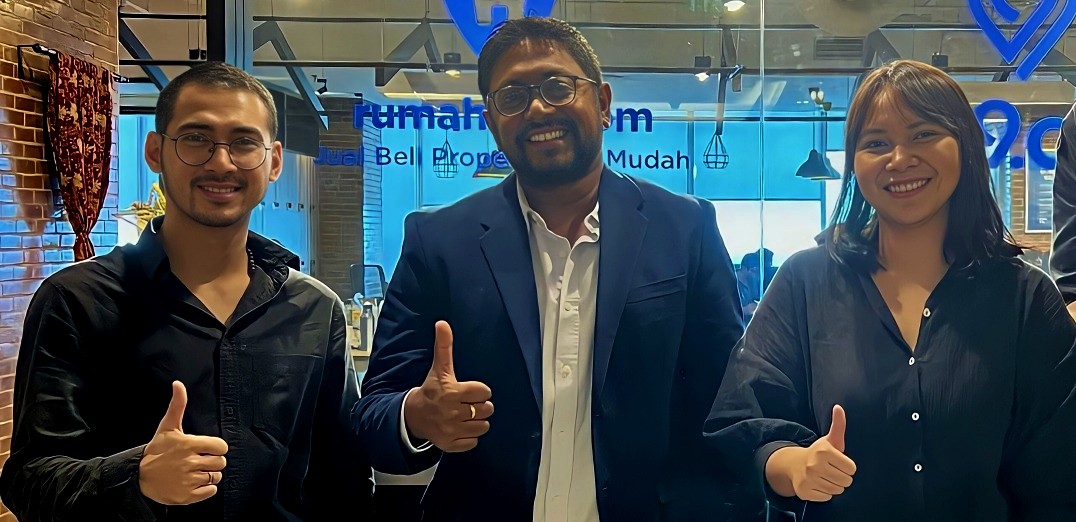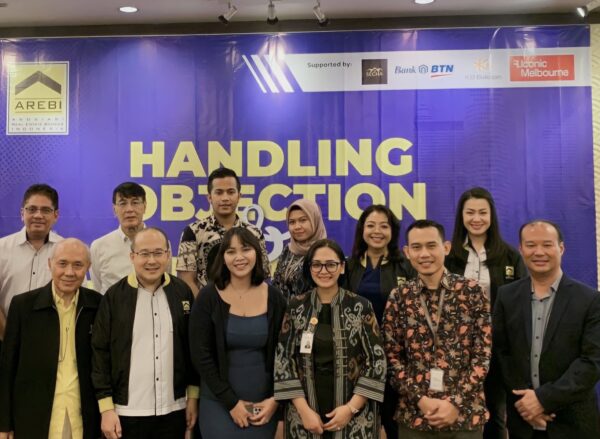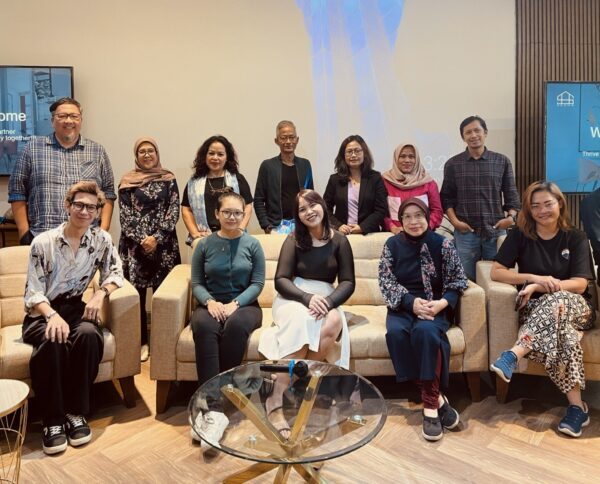What is Secha Home
Q: Can you share the background of your company, Secha Home?
A: Secha Home is rooted in property technology. In Indonesia, we’ve built a model for home improvement solutions that offer move-in-ready houses. What’s unique about our approach is that when people buy second-hand houses, the cost of the home already includes the renovation. In essence, the buyer pays for the home purchase, and the renovation is taken care of with no extra cost.
I actually came up with Secha Home during my time in Antler. It was a fast-paced journey, as we had only three months to launch the business. Being part of Antler was pivotal in how Secha Home was formed and developed.
Why Antler
Q: What made you decide to join the Antler accelerator?
A: Joining Antler was an intriguing proposition for me. The accelerator offers a unique structure where you have a very limited time to build a business from scratch. Before Secha Home, I had founded another company in the education sector. What attracted me to Antler was the opportunity to kickstart a company that’s already backed by venture capital. This setup not only helps in the initial stages but also provides leverage for subsequent fundraising rounds.
Antler’s Application Process
Q: What are the ways to join Antler and how does the initial process look?
A: There are two main pathways to joining the Indonesian cohort of Antler. The first is tailored for individual founders who are on the lookout for co-founders, while the second is for companies that already exist and are seeking funding. I joined as an individual entrepreneur, eager to find like-minded co-founders. The application is rather straightforward, similar to a typical job interview where they dive deep into your background and prior experiences. However, Antler’s main aim is to curate a blend of individuals from varying backgrounds, be it technical, industry-specific, or those with business acumen.
Q: Can you explain the two rounds of interviews at Antler?
A: Absolutely. The first round of the interview is with the HR team. This includes members from the founders’ card and the investment team. In this phase, they assess if you have a defined vision for what you’d like to build and try to identify the traits that could make you a successful founder. This opportunity is not just for those launching their second venture but also for budding founders.
If you pass this round, you proceed to the final interview with the program director or sometimes even with a partner. Here, the focus shifts to understanding any pre-existing ideas you might have for the accelerator. Additionally, they aim to get to know you on a personal level to determine if you embody the qualities of a founder. The whole process is designed to be quick, often spanning just a few days between rounds.
The Antler Program
Q: What does the Antler program look like post-selection?
A: Once selected, individuals or teams go through a program that lasts about 2.5 months. The initial three weeks are all about understanding the fundamentals of being a founder. This period is more about networking, speed dating, and trying to find a co-founder with a compatible vision. By the end of these three weeks, participants need to decide with whom they will collaborate to build a business. Then, they present their business idea at the Antler Hub, focusing on market validation and research. Upon approval from the Investment Committee (IC), they move to two rounds: the pre-IC and the IC. Here, they present their idea, and market validations, and meet the selection criteria since Antler invests in only about 8 to 15 companies per cohort. The business idea needs to align with Antler’s investment thesis, aiming for profitability and market problem-solving. This process culminates with a 10-minute presentation and a Q&A session with Antler partners and external VC members.
Q: How was your experience posting the IC selection?
A: After the IC selection, Antler assigns a dedicated coach to startups. In my case, we had a mentor from Singapore who was proficient in property technology, and one from Indonesia. Weekly coaching sessions were conducted to discuss business metrics, marketing approaches, and growth strategies. This mentorship emphasized building business fundamentals. After the investment phase, startups usually operate independently.
Post-Antler Growth
Q: How has Secha Home grown since graduating from Antler?
A: Since graduating from Antler 10 months ago, we’ve seen significant growth. Even when funding and market activities slowed down, we managed to secure USD 20,000 in revenue from pre-booked houses. Additionally, our partnership with major B2B companies, especially large developers, has been flourishing. A major catalyst for our growth is the credibility we gained from being backed by Antler. It provides an instant boost every time we engage in new ventures or partnerships, which has undoubtedly contributed to the speed of our growth.
Q: What is the current status of your company and your growth strategy?
A: Our startup focuses on leveraging partnerships rather than building a dedicated sales team. With a core team of only five, we’ve partnered with conventional property agents. They become our extended sales team, which has proven efficient as their clients become ours. This strategy helps us grow rapidly without investing heavily in advertisements. Instead of pursuing a disruptive approach, we aim to harmonize with existing industry players.
Q: How Secha Home team is structured?
A: Our co-founding team at Secha Home consists of diverse backgrounds. While I handle the business and fundraising aspects, drawing from my past experiences, we also have a member skilled in operations from a construction background. They understand the intricacies of renovation costs and materials. Another key member comes from a finance background, which is crucial as we navigate home appraisals and mortgages.
Final Advice
Q: Any advice for prospective Antler participants?
A: When considering joining Antler, it’s essential to remain open to feedback. I’ve observed that individuals coming from corporate sectors or different domains sometimes exhibit a fixed mindset, which can be detrimental. It’s crucial to be receptive to recommendations and not be defensive. Being open leads to growth, and this is not only true for Antler but for any accelerator program. Engaging in conversations and valuing suggestions can lead to improved business ideas.


